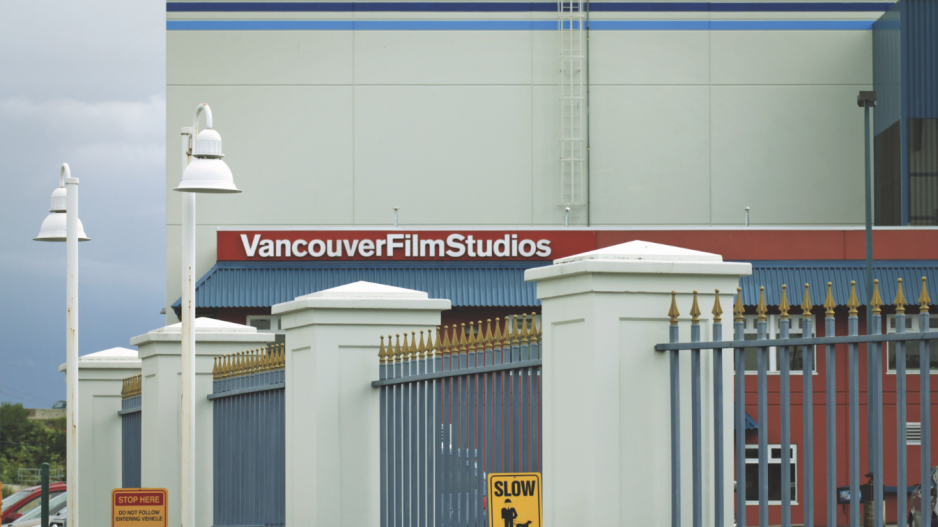Like Godzilla rising from the sea, B.C.’s film industry has been on a rampage since waking from a Snow White-like slumber last summer.
Last month alone the province added 10,200 jobs within the information, culture and recreation category, which includes work done in everything from record production to newspaper publishing; from cinemas to casinos.
But Ken Peacock, chief economist at the Business Council of B.C., said most of January’s job gains in that category would have come from the province’s film and TV sector.
Other jobs within the category, which also includes amusement parks and sports spectator events, aren’t expected to return in earnest until the third quarter of 2020 when vaccinations become more widespread, he said.
The big gains come after the Directors Guild of Canada’s B.C. chapter determined 70 productions were running simultaneously the week of September 20, 2020, beating the previous record of 57 simultaneous productions set in September 2016.
“Minute by minute, if there is a vacancy, it's gone before you can pick up the phone,” said Pete Mitchell, president and chief operating officer of Vancouver Film Studios Ltd.
The full-service production facility straddling the border of Vancouver and Burnaby features 12 purpose-built sound stages that have long been in high demand for big foreign productions.
But Mitchell recalled “a few dicey moments” last spring wondering if Vancouver Film Studio’s customers would honour their rental agreements when productions across the province were suspended in the immediate wake of the pandemic.
“They knew that if they bailed on us that when the industry did come back, they would be out of space and unable to continue,” he said.
“I got to give them credit for standing behind us.”
B.C.’s film and TV sector began reopening in earnest last summer following extensive consultations between industry players and WorkSafe BC that resulted in guidelines advising on everything from extensive use of PPE to on-set testing for COVID-19.
The guidelines went so far as to discourage singing and yelling in scenes filmed indoors, and pushed directors to consider different camera angles to maximize distance between actors.
They also emphasized that performers have the right to refuse contact with others for scenes involving kissing, hugging or stunts.
“We've got this reputation as a safe haven, which has only been enhanced by our reaction to the pandemic and how the people of British Columbia have really diligently listened to our provincial health officer [Dr. Bonnie Henry],” Mitchell said.
“Our principal competition is Toronto and Georgia right now, and they just haven't been able to come back the way we have.”
It remains unclear at this point how much the industry’s 2020 resurgence has been worth to the provincial GDP.
Film and TV production volume in B.C. reached $3.4 billion in the 2018-19 fiscal year, according to the Canadian Media Producers Association’s (CMPA) Profile 2019 report released in April 2020.
The vast majority of activity in B.C.’s film industry — $2.82 billion — was service work for foreign productions.
Big gains were made that year in Canadian TV productions in B.C., growing 9.3% year over year to $482 million.
However, all the data was compiled for a fiscal year that ran from April 1, 2018 to March 31, 2019.
The next annual report would presumably not reflect the full impacts of the pandemic if it were to cover the fiscal year running from April 1, 2019 to March 31, 2020.
Beyond the latest jobs numbers, though, demand for talent is also being reflected at local educational institutes.
In the city’s downtown, InFocus Film School is in the midst of expanding to a second campus.
The flagship Gastown campus is being converted into studio space for students and rental space for productions, while future in-school learning will take place primarily at its new location on Seymour Street.
“The industry, right now, it’s piping hot,” said InFocus Film School executive director Steve Rosenberg.
While most classes are still taking place online for now, applications are up and he’s anticipating the school will require bigger classrooms to keep students physically distanced when in-school learning resumes later this year.
The second campus is taking up space along the stretch of Seymour Street known for international language schools. But with COVID-19 putting a pause on immigration, many of those facilities have been sitting empty.
Rosenberg said more people have been reconsidering their own careers amid the pandemic, leading many of them to follow their passion into the film industry.
Even with the prospect of vaccinations reopening competing jurisdictions, Rosenberg believes employment growth will remain steady for the long term.
And Mitchell said pressure will only continue to mount to meet the demand for talent.
“The three things that constrain the industry are facilities, people and locations,” he said.
“We’re going to need a lot of people in this film industry over the next 10 years as it grows substantially. And I think there's opportunity for people to come from some sunset industries around B.C. and Western Canada that could easily fit into the film industry.”




